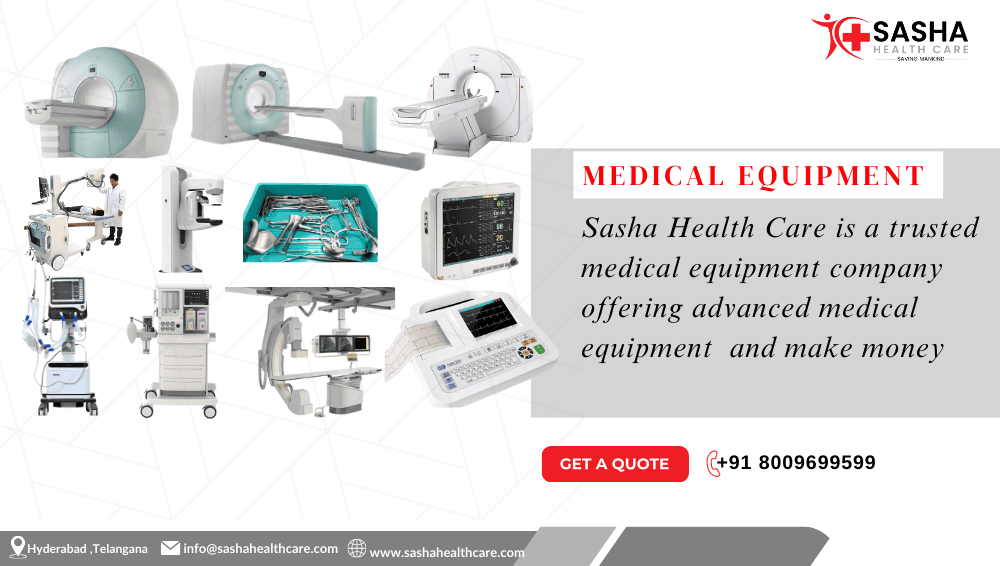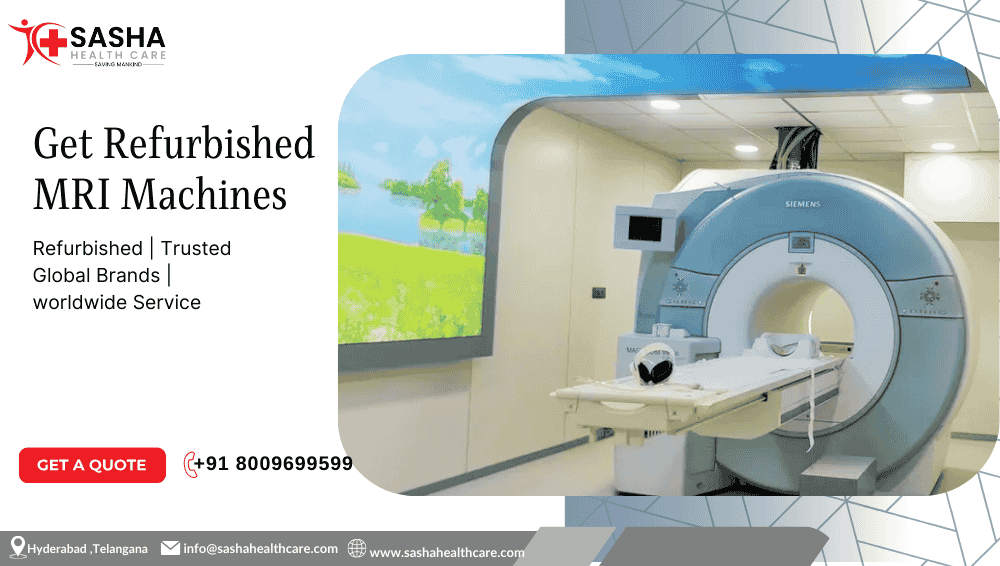CT Scan Suppliers in India – Reliable Solutions by Sasha Healthcare
Introduction
The healthcare sector in India is rapidly evolving, and diagnostic imaging plays a crucial role in accurate disease detection and patient care. Among all imaging modalities, CT scans (Computed Tomography scans) have become indispensable in hospitals and diagnostic centers. With the rising demand for high-quality imaging, choosing reliable CT scan suppliers in India is essential for medical institutions.
Sasha Healthcare stands as one of the most trusted suppliers, offering advanced imaging equipment, transparent pricing, and dependable service. This article explores everything you need to know – from the best CT scan machine price in India to details about the 32 slice CT scan price in India, while also guiding healthcare providers on making the right investment.
Why CT Scans are Vital in Modern Healthcare
CT scan technology enables:
- Accurate Diagnosis: Provides detailed cross-sectional images of the body.
- Speed: Faster than conventional imaging, crucial in emergencies.
- Versatility: Detects cancers, cardiovascular diseases, bone injuries, and neurological disorders.
- Precision: Helps doctors plan surgeries and treatments more effectively.
These advantages have created a consistent demand for CT scanners across India.
Factors to Consider When Choosing CT Scan Suppliers in India
When selecting a supplier, hospitals and diagnostic centers should evaluate:
- Equipment Quality: Ensure machines meet international medical standards.
- Technology Options: From basic to advanced slice configurations.
- Pricing Transparency: Competitive costs with no hidden charges.
- After-Sales Service: Availability of installation, maintenance, and technical support.
- Training & Support: Staff training for smooth equipment handling.
- Warranty & Spare Parts: Reliable backup in case of technical issues.
Sasha Healthcare – Trusted CT Scan Suppliers in India
Sasha Healthcare is recognized as one of the leading CT scan suppliers in India, offering cutting-edge solutions tailored to the needs of healthcare providers. The company’s reputation is built on:
- Wide Range of Machines: From 16-slice to 320-slice CT scanners.
- Affordable Pricing: Transparent and competitive prices suitable for all budgets.
- Nationwide Service: Dedicated support teams across India.
- Trusted Brands: Partnerships with global leaders in medical imaging.
- Customized Solutions: Machines for small clinics, diagnostic centers, and large hospitals.
By combining innovation with affordability, Sasha Healthcare ensures healthcare professionals can deliver accurate diagnostics to patients without financial strain.
Understanding CT Scan Machine Pricing in India
One of the most common questions buyers ask is about the best CT scan machine price in India. Pricing depends on multiple factors, such as:
- Slice Count: Higher slice machines provide better imaging but cost more.
- Brand & Model: Global manufacturers vary in features and pricing.
- New vs. Refurbished: Refurbished machines are more affordable options.
- Technology Level: Advanced features like low-dose scanning increase cost.
- Warranty & Support: Comprehensive packages may affect price.
32 Slice CT Scan Price in India
The 32 slice CT scan price in India generally falls between mid-range and high-range segments. These scanners offer:
- High-Quality Imaging: Greater detail compared to 16-slice systems.
- Faster Scanning: Reduced scan time, improving patient comfort.
- Wider Applications: Suitable for cardiology, oncology, neurology, and trauma cases.
- Cost-Effective Investment: Balances affordability with advanced features.
For hospitals and diagnostic centers seeking performance without extremely high budgets, a 32 slice CT scan machine is a reliable choice.
Benefits of Partnering with Sasha Healthcare
Choosing Sasha Healthcare as your CT scan supplier offers multiple advantages:
- Expert Guidance: Professional consultation on selecting the right CT scanner.
- Competitive Prices: Best market value with flexible payment options.
- Installation & Training: On-site support to ensure smooth operations.
- 24/7 Service Support: Quick response time to technical issues.
- Pan-India Reach: Serving healthcare providers in metropolitan and rural regions.
Key Highlights of Sasha Healthcare CT Scanners
- Low-dose radiation technology for patient safety.
- Advanced imaging software for precise diagnostics.
- Faster image reconstruction speed.
- Energy-efficient systems for reduced operating costs.
- Long-lasting durability with robust engineering.
Summary
- Trusted CT scan suppliers in India like Sasha Healthcare provide affordable, reliable machines.
- The best CT scan machine price in India depends on slice count, technology, and service support.
- 32 slice CT scan price in India offers excellent balance between cost and performance.
- Sasha Healthcare ensures nationwide service coverage and premium product quality.
FAQs
A: Sasha Healthcare is among the most trusted suppliers, offering high-quality CT scan machines with excellent service and pricing.
A: The price varies depending on the slice count, technology, and brand. Sasha Healthcare provides competitive pricing tailored to different budgets.
A: The 32 slice CT scan price in India is mid-range, making it ideal for hospitals and diagnostic centers that want quality without overspending.
A: Because Sasha Healthcare offers nationwide service, advanced technology, competitive prices, and complete after-sales support.
A: Yes, both new and refurbished CT scanners are available to match the budget needs of different healthcare facilities.











